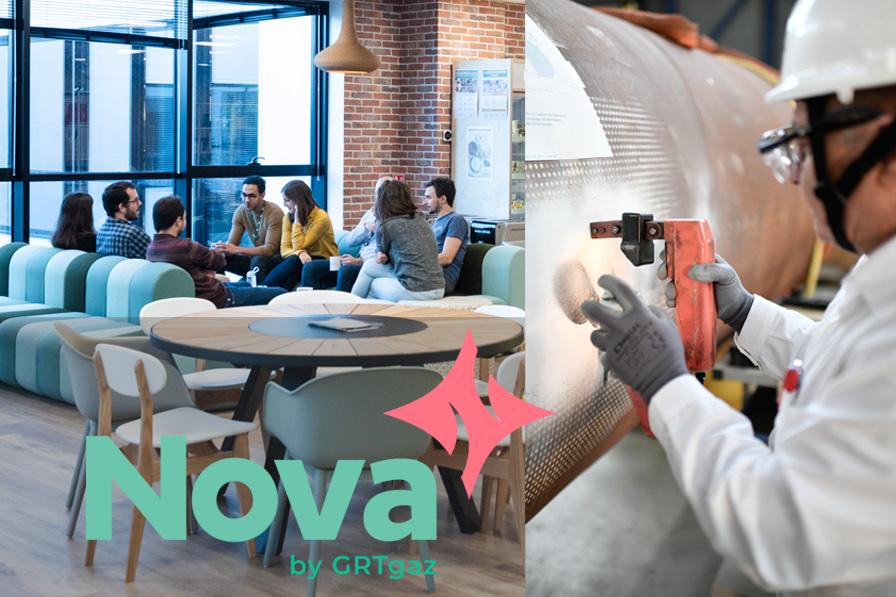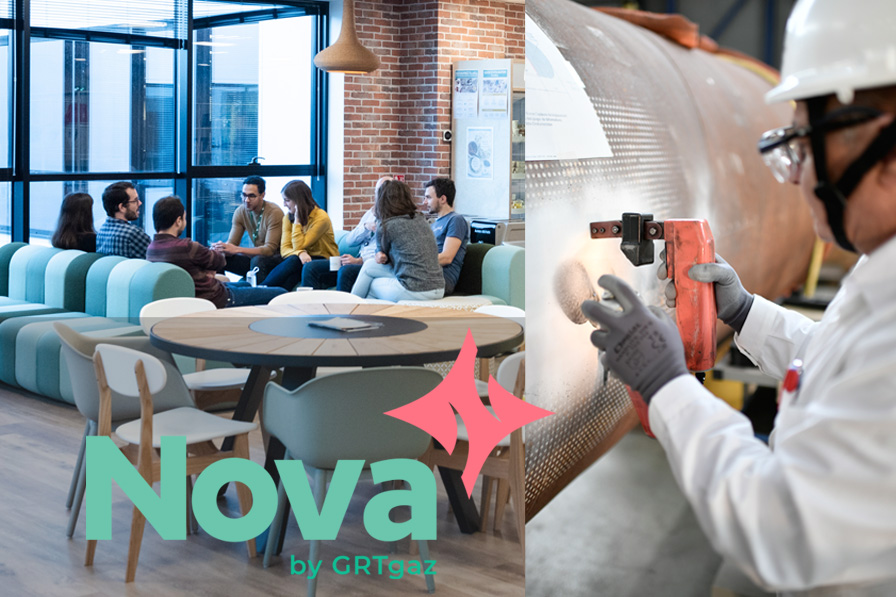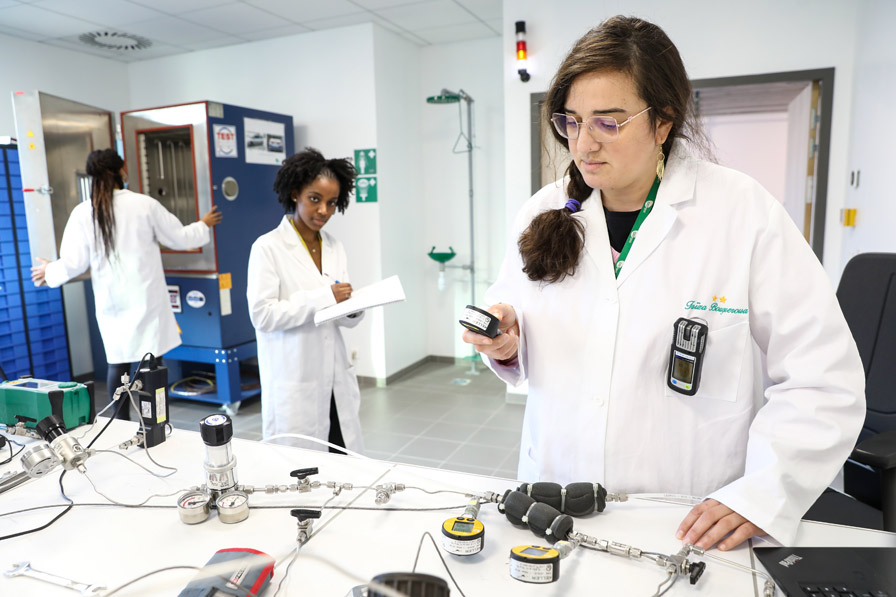GRTgaz reveals the first cohort for its Nova incubator

Following its first call for applications, a panel made up of representatives of various professions across the company selected four start-ups and young companies to get 12 months’ worth of support in the new Nova incubator. Incubation will commence on 7 November 2022 when the start-ups will be welcomed to GRTgaz's RICE research centre in Villeneuve la Garenne (Paris region).
Through its new incubator, GRTgaz is providing start-ups engaged in developing solutions for the industrial, energy and ecological transition with the opportunity to accelerate their growth, while at the same time sharing their expertise. This year of incubation will enable start-ups to enjoy immersion in the industrial world of a gas transmission company which has gone off on a tangent to develop renewable gases and bring about the energy transition in the regions it serves. GRTgaz will get to draw inspiration from the entrepreneurial experience of these start-up companies with their agile and creative mindsets.
Four winners, all with complementary and varied backgrounds and areas of expertise have been selected:
- LYNX for the “industry 4.0 and digitalisation” field. This young company designs and manufactures mixed-reality glasses that enrich and augment a technician's real environment using a realistic 3D model of the infrastructure in question.
“Nova will enable us to tackle the kinds of problems we would encounter out in the field, working alongside helpful technical operators and R&D engineers. It will also give us the unique opportunity to access equipment and facilities exclusively reserved for the GRTgaz research centre”Chouki Hadri
Lynx’s VP and General Manager
- LIUM for the “industrial, energy and ecological transition” field. This company manufactures balloons anchored to the ground by a cable for monitoring industrial sites. These balloons are fitted with cameras which help manufacturers better manage safety, environmental risks and other risks associated with certain types of operation.
“Finding out that we were going to be part of the very first Nova cohort was excellent news for us. Working alongside GRTgaz will help us speed up the technological and commercial development of Lium so we can accomplish what we set out to do”Guilain Yvon
Co-founder and CEO of Lium
- SOLAR FOCUS for the “new gas and young company” field. This company seeks to develop energy production in a way that does not exploit the planet's rare or fragile resources. For example, it produces gas from waste using pyrolysis with help from the sun's rays.
“We are delighted to be joining the Nova incubator’s first cohort, with everything that doing so represents and all the opportunities it will mean for Solar Focus’s development We are keen to get started on the next phase of the project!”Thomas Delapierre
Solar Focus Project Leader
- YLSSEN for the “operational performance and industrial safety” field. And finally, YLSSEN for the “operational performance and industrial safety” field. The electronic system it has developed that people know remotely and in real time whether industrial valves are open or closed. It can be implemented without having to make any changes to existing equipment and without disrupting production or distribution operations at the industrial site in question.
“The whole YLSSEN team is aware of the opportunity it has been given and would like to thank GRTgaz and its Nova team for having selected it to be part of this first cohort. We are thrilled about all the mutual benefits that our working together will yield”.Stéphane Canet
CEO of Ylssen
Starting on 7 November, the selected start-ups will get to share workspace at GRTgaz’s premises. They will also enjoy the support of its “RICE” Research and Innovation Centre for Energy. This will include access to testing areas and input from researchers for internal tests. Furthermore, the Nova incubator will provide the start-ups with bespoke technical, methodological and entrepreneurial support via its own innovation acceleration scheme (market studies, economic studies, intellectual property, business models, etc.).
Once the panel chaired by Pierre Blouet, Director of RICE, GRTgaz's centre for research and development, had finished its deliberations, he said: “Now that the four winning start-up companies been revealed, I’m looking forward to seeing what next steps they will take. They will shortly get to benefit from incubation in areas that are both complementary and varied, and discussions will get underway between GRTgaz specialists and these innovative entrepreneurs”.
Submissions selected and incubation
Several stages were involved in selecting the winners: first, experts from the various fields in question looked at the 15 applications submitted in the summer of 2022. The applicants were then shortlisted. An oral session was held so that they could present their business and their project before a panel. Several criteria were looked into, such as their connection to GRTgaz’s interests and strategy, as well as areas in which they could work together, and the ways in which GRTgaz could help these start-ups switch up to the next stage of their development.
Press contact
Pour aller plus loin

Nova, a start-up incubator
